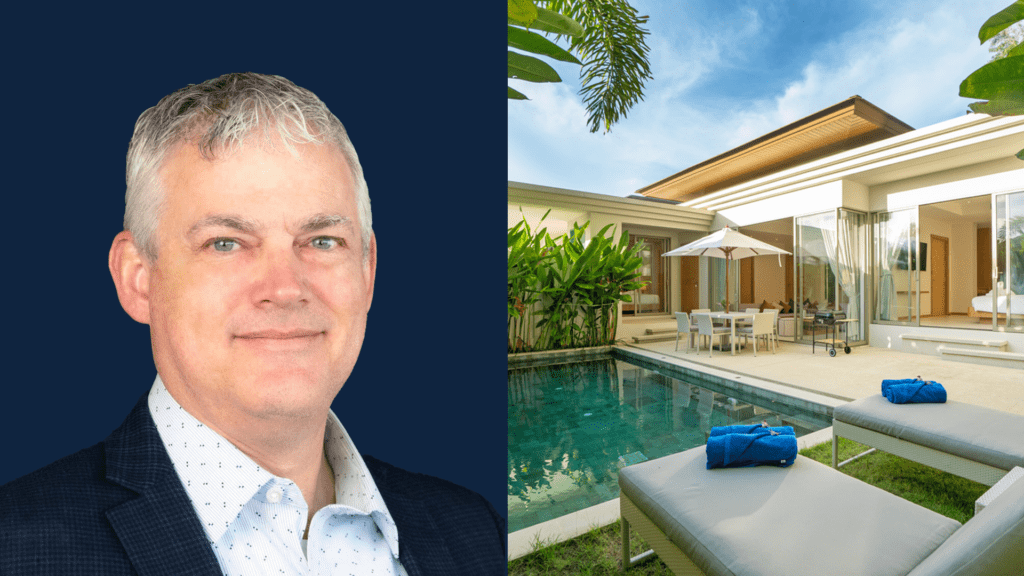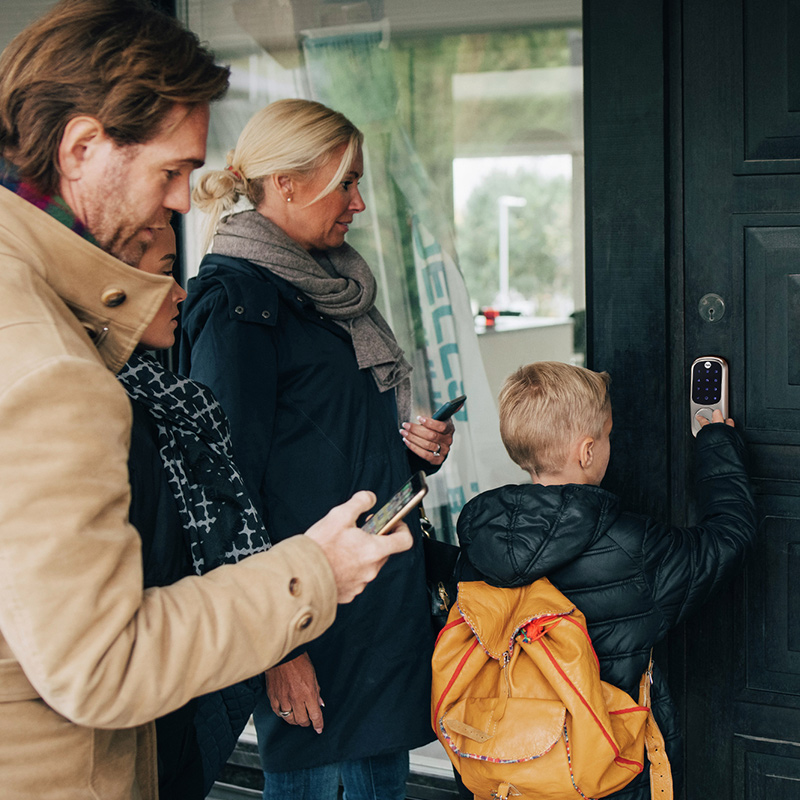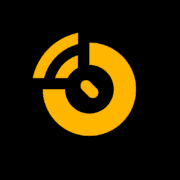Building a Vacation Rental Tech Stack: a Q&A with CEO Nolan Mondrow

In the fast-evolving vacation rental industry, technology is no longer optional — it’s essential. From automating guest access to streamlining cleaning schedules, the right tech stack enables property managers to operate efficiently and deliver exceptional guest experiences.
But with so many solutions available, where should vacation rental managers start? We sat down with RemoteLock CEO Nolan Mondrow to explore how property managers can build an effective tech stack, what to prioritize, and how to prepare for the future.
What is a Tech Stack?
A tech stack refers to all the software tools a business uses to operate efficiently. Mondrow describes it as “a grouping of technology. In our industry, we’re really talking about the software packages, systems you use, and how you integrate them.” For vacation rental managers, this includes everything from property management systems (PMS) to access control solutions, housekeeping scheduling tools, and even guest-facing apps.
According to Mondrow, the most prominent technology in a vacation rental tech stack is the property management system: “Their core functions are financial and accounting and making sure you properly report to property owners and compensate them for their share of the rental income.” After addressing a property management system, solutions like channel managers, cleaning management tools, and IoT devices (e.g., thermostats and sensors) need to be addressed.
Is Technology a Higher Priority for Larger Companies?
Absolutely, Mondrow affirms. “More complexities increase with scale,” he explains, pointing out that larger companies manage more units, have more employees, and handle more tasks that require or benefit from automation.
However, Mondrow notes that smaller operators can still benefit from leveraging technology. “Access control is often the first piece of tech they adopt because it solves such a big pain point.”
Which Tech Solutions Should Property Managers Prioritize?
Mondrow outlines a clear progression for vacation rental managers building their tech stack:

- Access Control: Automating guest entry eliminates the need for manual key exchanges and increases security. “It’s the first thing even small managers look at,” Mondrow says.
- Property Management Systems (PMS): Once managers oversee 15-20 units, they need tools to handle accounting, taxes, and reporting.
- Channel Management: For managers overseeing 30+ units, the management tools for syncing bookings across platforms like Airbnb and Vrbo that are built into their PMS might not be sufficient anymore. Dedicated software becomes essential.
- Operational Tools: As companies scale further, tools for scheduling cleanings, managing maintenance, and automating workflows help streamline operations.
The priority should be identifying technology that integrates seamlessly with existing systems: “Choose core tech first, and then add advanced point solutions that integrate well,” Mondrow advises.
What Are the Benefits of Incorporating Technology Into Property Management?
Investing in software offers significant advantages for both operational efficiency and guest experience. Access control is a prime example. “It’s operationally efficient because you don’t need staff to meet guests or exchange keys,” says Mondrow. “And it’s great for guests because they can access the property seamlessly without any hassle.”
Technology advancements also enable guest-facing benefits, such as mobile apps that allow control over thermostats or offer local recommendations. Mondrow highlights a win-win scenario: “With some software, if a guest rents a kayak through an app, they get a discount, and the property manager receives a kickback. It’s beneficial for everyone.”
What Role Does RemoteLock Play?
RemoteLock plays a crucial role in vacation rental tech stacks by automating access control. Mondrow explains how RemoteLock simplifies tasks like:
- Guest Access: Eliminate the need for manual key exchanges or insecure lockboxes.
- Cleaning and Maintenance: With RemoteLock, managers can grant time-bound access codes for cleaners or maintenance workers, streamlining operations.
- Notifications: Managers receive alerts when guests enter properties, reducing the need for proactive check-ins.
RemoteLock’s integrations with hardware and software solutions enhance its value. “Because we are integrated with so many lock brands, managers avoid capital costs when acquiring new properties. Our integrations with scheduling tools automate workflows, saving even more time.”
How Should Property Managers Choose Software?

When selecting software, Mondrow advises property managers to start by aligning solutions with both their current and future needs. The first step, he explains, is to focus on core technology such as access control and a property management system (PMS). These tools lay the groundwork for an efficient operation, ensuring managers can automate tasks and manage their properties effectively from the start. Each additional tool should integrate seamlessly with these core systems to avoid disruptions.
As managers scale, Mondrow recommends taking a gradual approach: “Stick with a unified PMS until you outgrow it, then adopt advanced point solutions where you need deeper functionality.”
He also cautions managers to watch for key red flags when choosing software. “Make sure the company’s ideal customer profile matches your size,” he advises. A PMS designed for small managers with 5-10 units won’t be suitable for a 200-unit operation. Another red flag to avoid is proprietary hardware, which locks property managers into specific systems. “If you ever want to graduate from that vendor, you’ll have to re-buy everything,” Mondrow warns.
By carefully selecting core systems that integrate well and avoiding these pitfalls, property managers can build a tech stack that is scalable, flexible, and aligned with their growth goals.
What Does the Future of Vacation Rental Tech Look Like?
Mondrow predicts continued innovation, especially around automation and AI, which are poised to transform guest communication and operational efficiency. For managers, unified communication tools will play a key role: “Answering guest inquiries takes up a lot of time. AI will automate communication, both for prospects and guests.” AI has already started to make significant strides in simplifying communication, with systems that handle inquiries about bookings, amenities, and local recommendations.
Beyond communication, Mondrow envisions AI automating operational tasks within property management systems (PMS). While still in its early stages, AI is already capable of automating routine workflows, such as generating reports or managing simple commands. “Right now, AI is good enough to simulate button clicks you’d do manually,” he explains. “It’s not creating new answers; it’s just doing the task for you.” As these capabilities expand, AI will play a central role in streamlining operations, allowing managers to save time and focus on more complex tasks.
How RemoteLock Can Help

If you’re ready to build a strong tech stack for your vacation rental business, start with RemoteLock. Automating guest access with a reliable system like RemoteLock lays the foundation for operational efficiency, saving you time and improving the guest experience. As Nolan Mondrow explains, integrating core tools like access control and a property management system (PMS) ensures a seamless workflow and sets you up for growth.
From there, you can scale your business with advanced solutions — whether it’s cleaning management, channel management, or AI-powered tools — all while staying competitive in a professionalizing industry. RemoteLock provides the flexibility and integrations you need to create a tech stack that works today and grows with your business into the future.

RemoteLock
Advanced Access Control and More
RemoteLock has been automating access control and improving on-site property operations efficiencies across multiple industries, including vacation rental and multifamily, for more than ten years. As a leading access-centered property operations software platform provider with more than 10,000 customers in 75+ countries, RemoteLock helps property managers enable, control, and automate access and climate control across their portfolio. RemoteLock’s platform saves property managers time and money through the elimination of tasks for onsite staff and helps scale businesses with greater confidence. It is differentiated by its dozens of integrations with applicable hardware and business software systems for an easy-to-use, turn-key solution.
